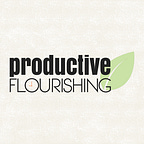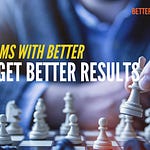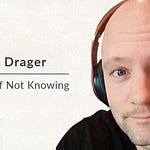As the release date for the book draws nearer, Charlie reflects on the ups and downs of the journey of this book. Angela joins Charlie on the podcast to ask some questions about the book. In this episode, Charlie shares some of the ideas and dichotomies around productivity, and how his book seeks to help people understand productivity in a new light. This episode is sure to get you excited about reading the book yourself - there is something in it for everyone.
Key Takeaways:
[0:05] - Charlie’s new book, Start Finishing: How to Go From Idea to Done will be released on September 24th, 2019. Productivity is how we become our best selves in the world. The book covers tools, practices, and mindsets that will help you finish the stuff your soul is yearning to do. There are contributions from Charlie’s friends, colleagues, and teachers. If you’d like to pre-order a copy, click the link below.
[4:35] - Angela has played an active role in Charlie’s writing process. She inspires his writing and they both have been readers of each other’s work for a long time. After reading the completed manuscript, Angela was surprised at how much the book resonated with her, since she’s been engaged in Charlie’s work almost as long as he has.
[8:10] - Part of the joy surrounding how the book develops is writing for some specific people. These early people support you and can also give you feedback as the book comes together.
[9:20] - The book is much more than a productivity book; it seeks to guide our productivity from the heart and the soul. What sets this book apart is the scope of people it has been able to reach, even before its release. The productivity space hasn’t always been accessible to all people, especially those who are underdogs.
[13:15] - We need to talk as much about the work of lives as we do about the life of our work. The talk in society often talks about economic work, which is the centerpoint of everyone’s life. Women are often left out of this conversation, due to sometimes having to prioritize others’ needs before their own.
[14:50] - Productivity started as a means of increasing the amount of yield from workers. It has transformed to us figuring out how we are going to get everything done that we need to - relationships, ourselves, finances, health, and all the different things we have to take care of in addition to economic work.
[16:15] - A project is anything that takes time, energy, and attention to see through. In that context, all the stuff in our life is a project. Once we can step away from that overwhelming feeling of all the projects we’re juggling, we can figure out how to work through and solve that overload.
[19:05] - “Work” is a four-letter word that is sometimes associated with other words that we want to avoid and get away from. We’ve gotten to a point where we want to do less work, except for our “best work.” This is work that benefits us and others when we do it; we want to do more of this type of work.
[21:15] - Talking about doing the work we are called to do can sometimes seem selfish. Charlie seeks to shift the conversation to highlight that other people tend to benefit from our best work. Our best work is uniquely ours - this is important to remember because it can keep you going when you’re in a low place. The projects that fuel our best work are easily displaced by other people’s projects - be careful when saying yes to short-term work from others, even when that can be scary.
[24:45] - Sometimes your best work may not be in the same line as your economic work. There is honor in doing your economic work that serves you and your family (bills, well-being, etc), but this displaces the time we have to focus on our best work. We may not always be able to find an economic outlet for our best work, but that is okay. Just because you can’t get paid to do it, doesn’t mean it’s not worth doing.
[27:15] - We almost all have some wasted time that we can steal to work on our best work. For some this is recovery time, but we should think about whether it is serving us more than other things, like spending time with our families, playing music, etc. Once you determine your priorities, stop beating yourself up about the things you aren’t doing.
[28:40] - Michelle Jones is the founder of the Wayfinding Academy. She is an example of someone who used their economic work to inspire a pivot into their best work. Look for ways you can shift aspects of your economic work to do it in a way that only you can, that transforms it from merely economic work to something that’s got your fingerprint on it.
[31:35] - Another aspect of the book focuses on the support system around us that can help us create things in the world. It’s hard to do your best work alone. A success pack is a pack of people that you put around yourself specifically for projects, and for our lives in general.
[34:50] - People you don’t want in your success pack: naysayers and derailers. Naysayers are the ones who hate on you, whether it’s about you or about your project or about a grudge they hold. We spend too much time trying to please our naysayers. Derailers are people who may be well-meaning, but their commentary about your work discourages you. They often are loved ones, but it can take too much energy to incorporate them into the success pack of your project.
[38:15] - Focus on your yaysayers. These are the people who have your back, and when you talk about your project, they ask you about how you’re going to be successful, not whether you will be. They know and realize your potential, often before you do. There are four types of yaysayers: guides, peers, supporters, and beneficiaries.
[43:25] - People usually want to get more guides on their projects, but Charlie encourages people to find more beneficiaries for their projects. When you get stuck, you can ask the person that you’re building it for. It can also help fuel you when you’re emotionally stuck because you remember that it’s not all about you.
[46:25] - The more a project matters to you, the more you’re going to thrash with it. If it doesn’t call up longing and frustration, it’s probably not your best work. The reason this work matters so much is because we’ve most closely tied our identities to these projects. If we’re not successful, what does that mean about who we are?
[49:25] - Many of us have internalized that if it’s our best work, it should be easy. This is a myth! We get good at something by doing it, and anything worth doing is worth doing badly at the beginning.
[52:00] - Angela talks about some of the different roles and people Charlie has been in his past: growing up in the South in a poor biracial family, an Eagle Scout, a military leader, a philosopher, a spiritual person. As he was writing, whatever came up came out. Sometimes different aspects of his background came through in certain parts.
[59:15] - This book is a productivity book, but it’s also a personal development book. It’s a book about family, and a book about spirituality. It’s a book about everything that makes us thrive as people. The process has been incredibly humbling for Charlie, especially with all the contributors. Through this book, Charlie hopes that people see that there is a lot of goodness and abundance around us, and that we have to do the work to harness it.
Mentioned in This Episode:
Productive Flourishing
Start Finishing, by Charlie Gilkey
What If Women Cared About Productivity
Wayfinding Academy
Michelle Jones on LinkedIn
SaneBox
Sounds True












